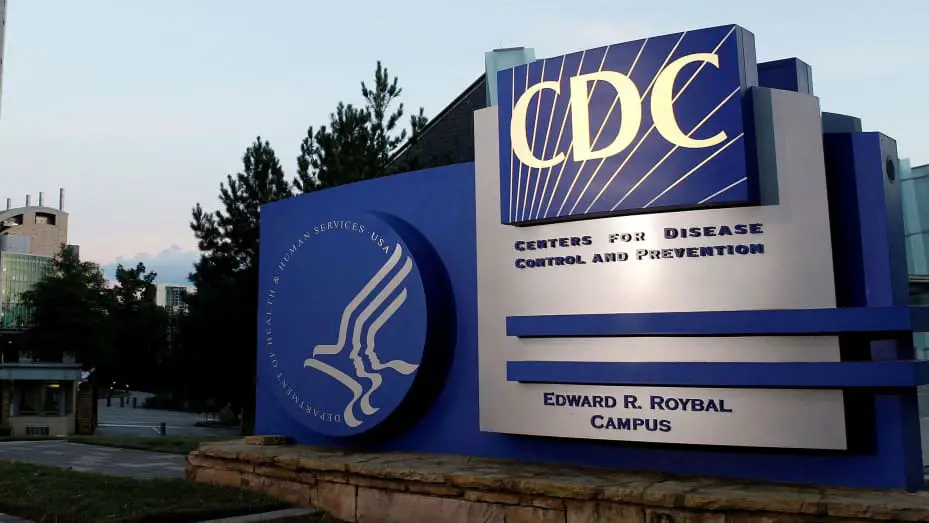Remember when being “fully vaccinated” meant you had your required number of doses–1 or 2, depending on vaccine type and manufacturer–of Covid-19 vaccine? Not for long. Many warned back in those early days that the goalpost for “fully vaccinated” was likely to be changed down the road, and that an endless parade of booster shots seemed inevitable. That day is nearing as the CDC admits it may change the definition of “fully vaccinated” now that almost everyone is eligible for booster shots. If you thought your single-shot dosage of Johnson & Johnson was enough to comply with a covid vaccination mandate in perpetuity, think again.
CDC directory Rochelle Walensky stated on Friday that the definition of “fully vaccinated” is likely to change in the future once booster shots are available to a larger share of the vaccinated population:
“We have not yet changed the definition of ‘fully vaccinated.’ We will continue to look at this. We may need to update our definition of ‘fully vaccinated’ in the future,” CDC director Rochelle Walensky told reporters.
“If you’re eligible for a booster, go ahead and get your booster and we will continue to follow,” she said.
In other words, “we will continue to follow” if enough of you comply voluntarily. When you don’t comply, we’ll mandate booster shots to be consdered “fully vaccinated.”
Having two doses of Moderna or Pfizer/BioNTech won’t be enough, nor will one dose of Johnson & Johnson. When this change will happen is still to be determined, but it’s all but assured since some studies lend credence to vaccine immunity waning over time.
The White House seems giddy since it will help push their booster shot message by essentially mandating booster shots to continue under the status of “fully vaccinated” sometime in the near future:
White House coronavirus response coordinator Jeff Zients noted that more than 70 million people are currently eligible to receive booster shots, adding that “more than 120 million Americans will become eligible for a booster in the coming months.”
“This includes over 60 million vaccinated with Moderna and J&J, on top of the 60 million vaccinated with Pfizer,” Zients said.
If 120 million more Americans become eligible for booster shots, it almost certainly means that by Spring or at least next Fall, booster shots on top of your original Covid shots will be the only scenario that will qualify as “fully vaccinated.”
As for enforcing a change such as requiring booster shots to comply with onerous vaccine mandates, it would be up to employers and states to ensure compliance, and it would be a nightmare:
A sudden injection of nuance could confuse a lot of people, though, and even discourage some from getting their first shot by making the process seem especially convoluted or onerous. For schools, businesses, and other institutions that have implemented vaccine requirements over the past few months, it would likely be a nightmare. If getting two shots doesn’t guarantee that you’re fully vaccinated, then who should be allowed to come to work? Will schools need to interview every teacher who was vaccinated before April about their medical history?
Let’s say a company has a workforce already 95% vaccinated today. What happens in 6 months or 9 months when the CDC decides that anyone who received a Covid-19 shot more than 12 months ago is no longer “fully vaccinated.” Millions of workers will fall into this category and be forced, yet again, to choose between getting vaccinated and keeping their job.
It’s a scenario that seems almost too cumbersome for the Biden administration to undertake, and yet it also seems highly probable given what we’ve witnessed so far.
The warning from the CDC underscores what many have been concerned about all along. Mandatory Covid-19 vaccinations are the slope that leads to mandatory Covid-19 booster shots. After all, if you submit the first time, you’ll now be required to submit again and again and again. Some people, like comedian Bill Maher, for example, said he took the first Covid vaccine “for the team,” but doesn’t plan on getting any booster:
“I mean, I don’t want a booster. I never wanted the vaccine. I took one for the team,” Maher said. “And, by the way, you know who doesn’t get a lot of vaccines? Millennials. I know a lot of millennials, especially the 20-year-olds. They don’t want it. They don’t think they need it — they’re probably right. But I tell them, I didn’t want it either — I took one for the team.”
Maher will not be in favor of frequent booster shots, he said.
“But every eight months, you’re going to put this s*** in me?” he asked. “I don’t know about that.”
There will be more people in that category than you’d think. People who, the first time around, got vaccinated for the protection of those around them or because they were pressured into it. Now they’ll be asked again to get another shot to continue functioning as “fully vaccinated” in their daily life.
No timeframe has been set for this upcoming change, but you can clearly see it in motion sometime early next year when booster shots are available and children as young as age 5 are receiving their first-time Covid vaccinations. The goalposts will be moved soon, you can count on it.
Donate Now to Support Election Central
- Help defend independent journalism
- Directly support this website and our efforts
